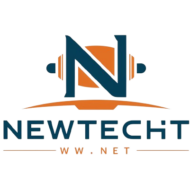According to tracking website Dow Jones VentureSource, 2009 was the worst year of the millennium for venture capital investment in Europe, when IT investment fell below a billion euros for the first time. Venture capitalists invested 3.2 billion euros in 916 deals last year, down 41% from the 5.1 billion euros invested in 1,234 deals in 2008.
So what exactly is going on? Venture capitalists prefer deals with more efficient capital and give companies just what they need to take the next step. According to Arnaud Kastata of VentureSource, this not only hedges investors’ risks, but also allows them to hold more capital at a time when fundraising and liquidity search are difficult.
The entire sector is under pressure not only because of the collapse in interest rates and their governments’ attempts to cut corners, but also because of the proposed European Directive on Alternative Investment Funds (AIFM), which would be an attempt to protect the sector. . Adjust. However, if adopted as it stands, however, it would create significant new costs for industry and make Europe a much less attractive place for direct investment. But perhaps more problematic is that it triggers what The London Daily News has called a devastating and totally unnecessary reform that could trigger a trade war with the United States.
American investors, including some Silicon Valley venture capital heavyweights such as the Mayfield Fund, are very interested in the European technology sector and it would be a tragedy to freeze them. U.S. Treasury Secretary Tim Geithner has already shaken his sword in a letter to the new EU Commissioner for Internal Markets Michel Barnier, which says: “We are concerned about several proposals that discriminate against American companies and give them access to European markets. they are now there. We very much hope that the rules you have introduced will provide non-European fund managers and global custodians with the same access as their European counterparts. You will find that our American approach guarantees full access to European fund managers and custodians in our market. “

Thus, European venture capitalists are under pressure, with the biggest deals most affected. Many venture capital firms in Europe are focused on their portfolio companies and have little interest in new deals, said Jean Schmitt, managing partner of Sofinnova Partners in Paris. The only people who can understand this situation are companies working in the renewable energy and new technologies sectors. Most of what happened last year was due to initial and early funding rounds, which accounted for 49 per cent of European transactions. Subsequent operations amounted to only 26%.
Entrepreneur Steve Kelly, owner of SmartKem, based at Optic Technium in Wales, has sought funding from private investors and public investment funds. Steve is going to start a second round of financing and closely monitor the financial markets. “We develop intelligent materials as an alternative to silicon chip-based semiconductors,” he explains. “The UK government is investing in the plastic electronics sector on the one hand to enable small businesses to collaborate with specialist centres to produce prototype materials and devices, and on the other, to create supply chains and sales channels, particularly in Asia.
Plastic electronics, which develops materials and processes for the manufacture of high-resolution microelectronic components directly on thin flexible materials, is the technology of the future. As infrastructure, businesses and financial services have lost their taste for venture capitalists, they all want to take a stand in areas that could lead to the next bubble.
This enables flexible small investors such as High-Tech Gr’nderfonds in Bonn, which invests in technology start-ups with significant growth potential. In the UK, Julie Meyer, CEO of Ariadne Capital, recently set up a fund of 20 million pounds to invest in Internet companies in the early stages of development and mobile Internet companies. “Difficult times can create tension to create a great team and a great product and enter the market; but if the business isn’t capitalized enough, it’s not going to work, so that’s what you need to do.
